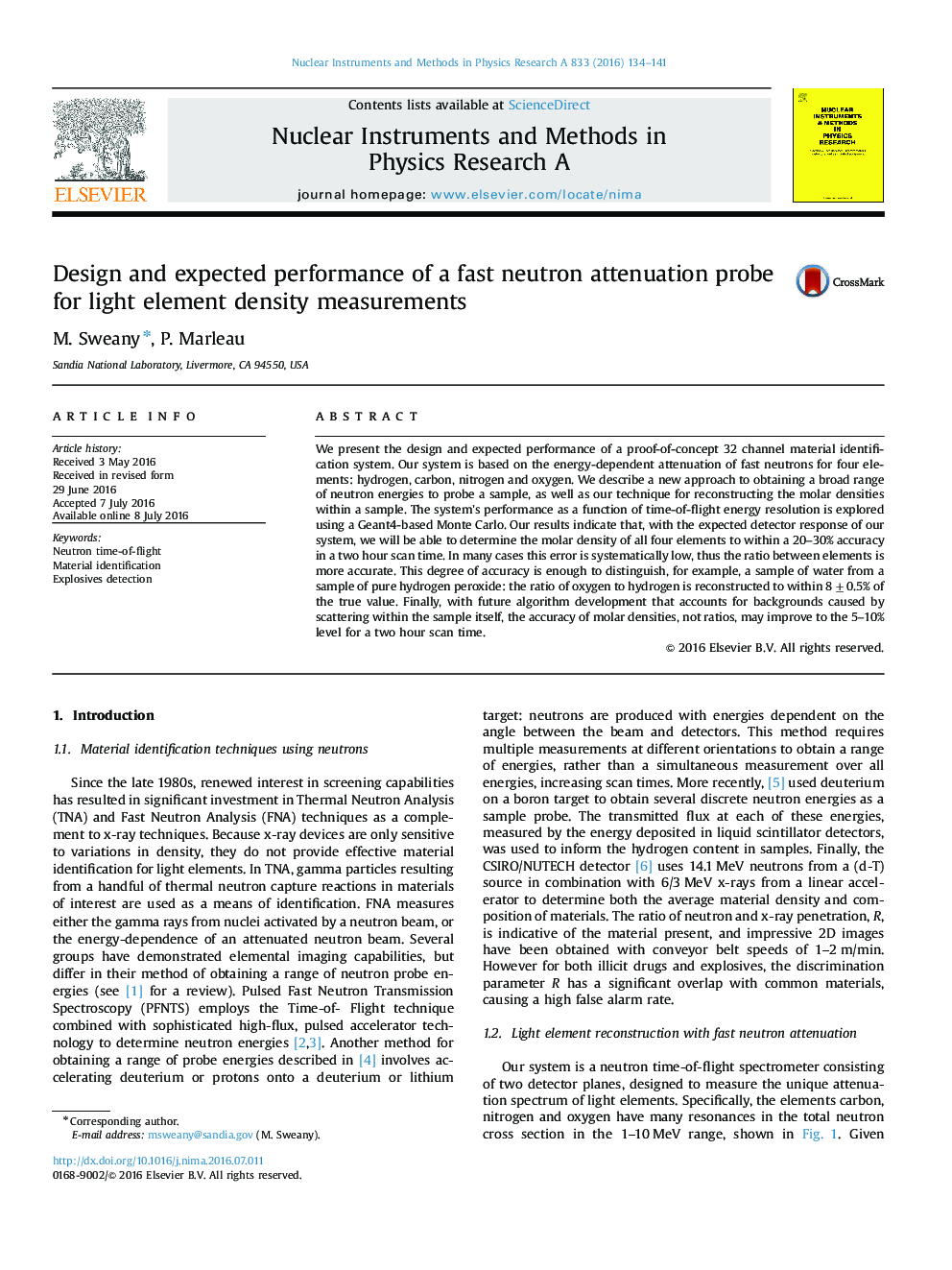| Article ID | Journal | Published Year | Pages | File Type |
|---|---|---|---|---|
| 8168498 | Nuclear Instruments and Methods in Physics Research Section A: Accelerators, Spectrometers, Detectors and Associated Equipment | 2016 | 8 Pages |
Abstract
We present the design and expected performance of a proof-of-concept 32 channel material identification system. Our system is based on the energy-dependent attenuation of fast neutrons for four elements: hydrogen, carbon, nitrogen and oxygen. We describe a new approach to obtaining a broad range of neutron energies to probe a sample, as well as our technique for reconstructing the molar densities within a sample. The system's performance as a function of time-of-flight energy resolution is explored using a Geant4-based Monte Carlo. Our results indicate that, with the expected detector response of our system, we will be able to determine the molar density of all four elements to within a 20-30% accuracy in a two hour scan time. In many cases this error is systematically low, thus the ratio between elements is more accurate. This degree of accuracy is enough to distinguish, for example, a sample of water from a sample of pure hydrogen peroxide: the ratio of oxygen to hydrogen is reconstructed to within 8±0.5% of the true value. Finally, with future algorithm development that accounts for backgrounds caused by scattering within the sample itself, the accuracy of molar densities, not ratios, may improve to the 5-10% level for a two hour scan time.
Related Topics
Physical Sciences and Engineering
Physics and Astronomy
Instrumentation
Authors
M. Sweany, P. Marleau,
